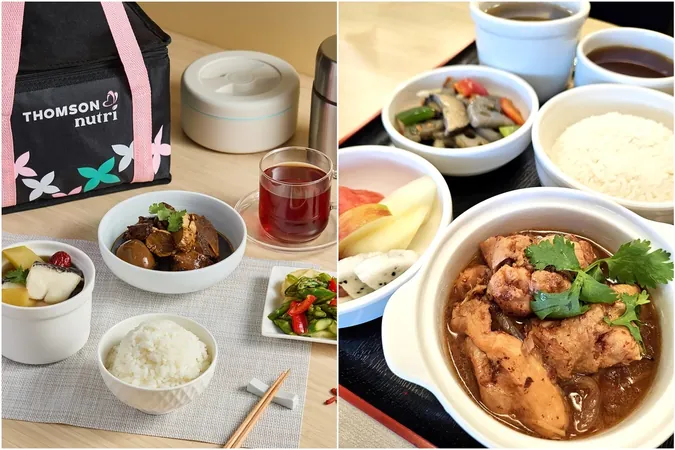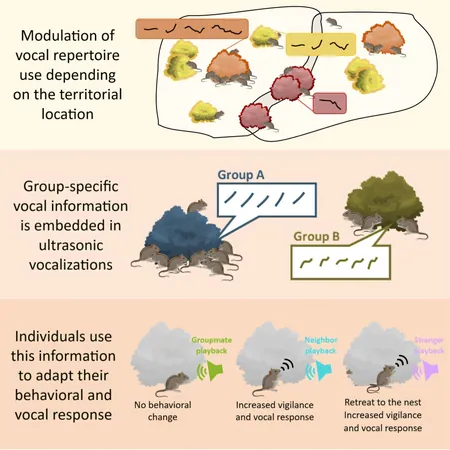
Confinement Meals in Singapore: Essential Tradition or Costly Convenience?
2025-09-13
Author: Wei Ling
The High Cost of Motherhood in Singapore
Having a baby in Singapore can feel like an endless financial journey, starting from the first payment at the clinic and quickly accumulating to thousands of dollars. Beyond prenatal check-ups, new parents face numerous expenses, from strollers and diapers to the birth costs.
Amidst these financial strains, can new mothers justify spending another thousand dollars on confinement meals? At around $30 per meal, it’s a significant investment for food that might not always feel worth the price.
A Shift in Perspective
Many mothers, like Alisha Teo, are rethinking traditional confinement meals. After trying a meal from a well-known confinement service, she opted to prepare her meals ahead of time and relied on her mother and friends for support. "I would much rather eat my mum’s food than this," the 29-year-old said, ultimately saving over $1,000.
More mothers are also choosing shorter confinement meal plans or seeking alternative meal preparation options. Jia Yang Li, director of Mama J’s Confinement Food, noted this trend towards flexibility, indicating that many mothers now prefer to gradually introduce confinement foods rather than commit to a full month.
Cultural Significance of Confinement Meals
Confinement meals, deeply rooted in Asian traditions, emphasize balance—particularly between hot and cold elements, based on traditional medical beliefs. Following birth, women are said to enter a "cold" state that must be managed through diet.
Despite advancements, these traditions persist as many new mothers seek the comfort of familial support during recovery. Almost all participants of a 2016 study on postpartum practices reported adhering to confinement practices in the weeks following childbirth.
Modern Interpretations and Customized Diets
Some hospitals, recognizing the cultural importance of confinement meals, have integrated them into their standard offerings. For instance, Thomson Medical’s meal plans include dishes designed to warm the body, consulting with traditional Chinese medicine experts and dietitians to ensure they meet postpartum nutritional needs.
However, dietitians warn against some common misconceptions regarding postnatal nutrition, emphasizing that not all traditional practices are beneficial or necessary for modern mothers.
A Growing Demand for Diverse Options
The demand for confinement meals hasn’t diminished; hospitals report a surge in requests for these services. In response, a variety of services have emerged beyond traditional Chinese offerings to cater to a more diverse clientele seeking halal and Indian cuisines.
Home-based businesses are stepping up, with couples like Amirudin Zain and Aszafirah Abu providing customizable meal options that incorporate various cultural preferences into their confinement menus.
Bridging Traditions and Tastes
Entrepreneurs like Punita Naidu are also making their mark, focusing on Indian confinement meals that bring familiar flavors to new mothers. Through careful attention to dietary preferences, she and others are redefining what confinement food can be—mixing traditional wisdom with innovative recipes.
As the culinary landscape of confinement meals evolves, mothers today have the opportunity to choose meals that not only meet cultural traditions but also cater to their individual tastes and health needs.
A Balancing Act of Tradition and Modern Needs
With the rising costs of living and the demands of new motherhood, many are left wondering: are confinement meals a necessary tradition or merely a luxury? What’s clear is the need for flexible options that recognize the diverse experiences of motherhood today. As historical practices are adapted to modern realities, the conversation surrounding confinement meals in Singapore is far from over.




 Brasil (PT)
Brasil (PT)
 Canada (EN)
Canada (EN)
 Chile (ES)
Chile (ES)
 Česko (CS)
Česko (CS)
 대한민국 (KO)
대한민국 (KO)
 España (ES)
España (ES)
 France (FR)
France (FR)
 Hong Kong (EN)
Hong Kong (EN)
 Italia (IT)
Italia (IT)
 日本 (JA)
日本 (JA)
 Magyarország (HU)
Magyarország (HU)
 Norge (NO)
Norge (NO)
 Polska (PL)
Polska (PL)
 Schweiz (DE)
Schweiz (DE)
 Singapore (EN)
Singapore (EN)
 Sverige (SV)
Sverige (SV)
 Suomi (FI)
Suomi (FI)
 Türkiye (TR)
Türkiye (TR)
 الإمارات العربية المتحدة (AR)
الإمارات العربية المتحدة (AR)